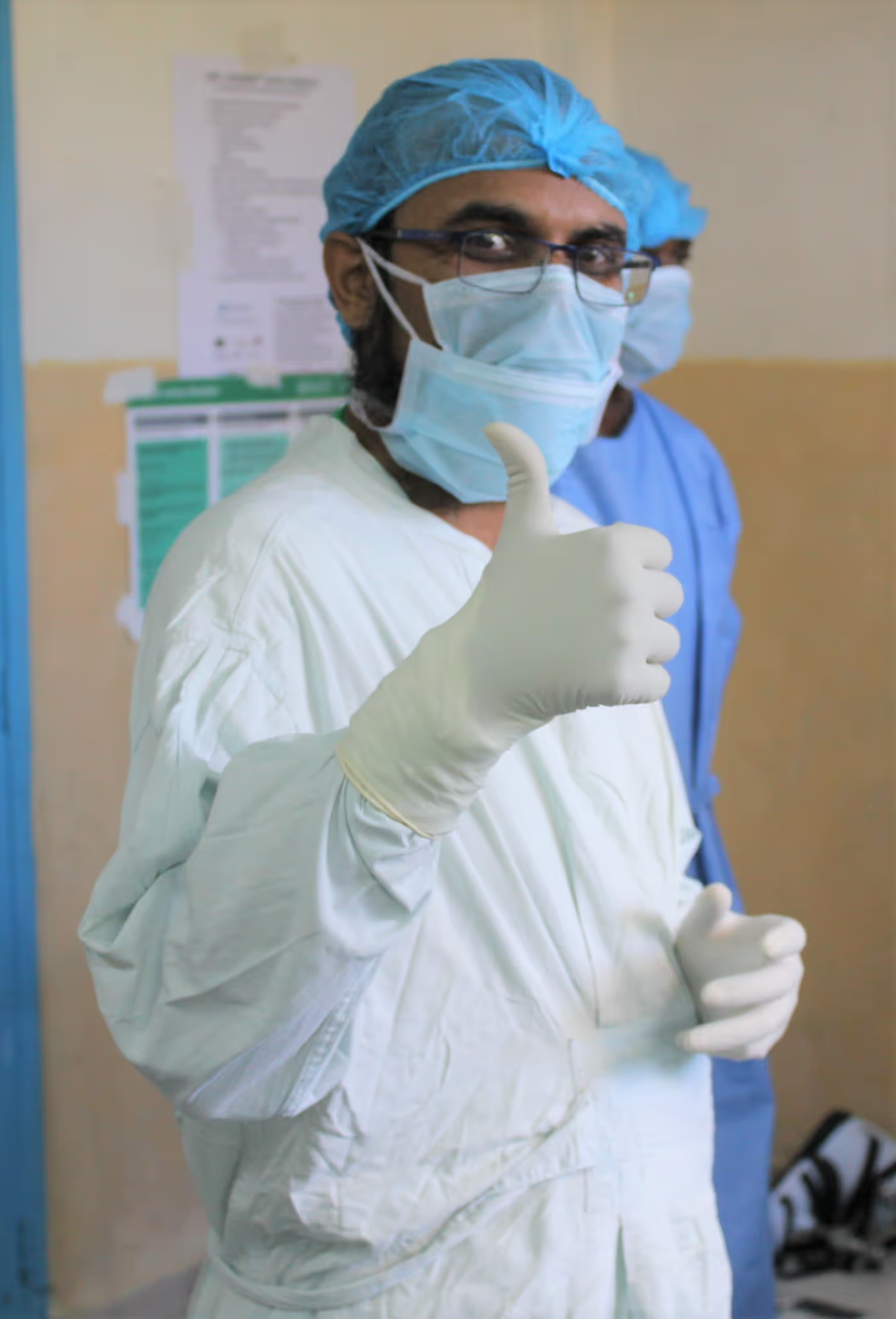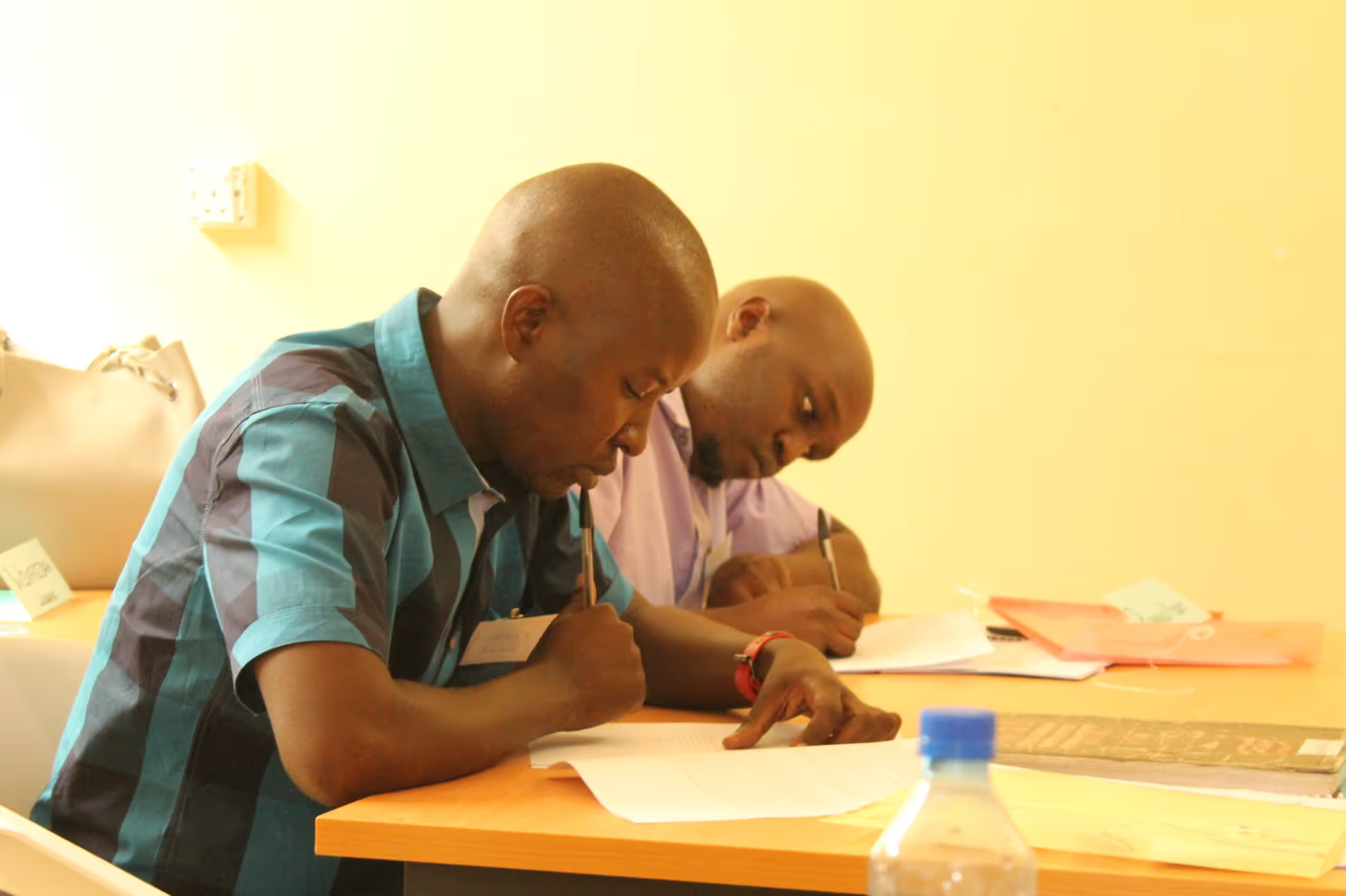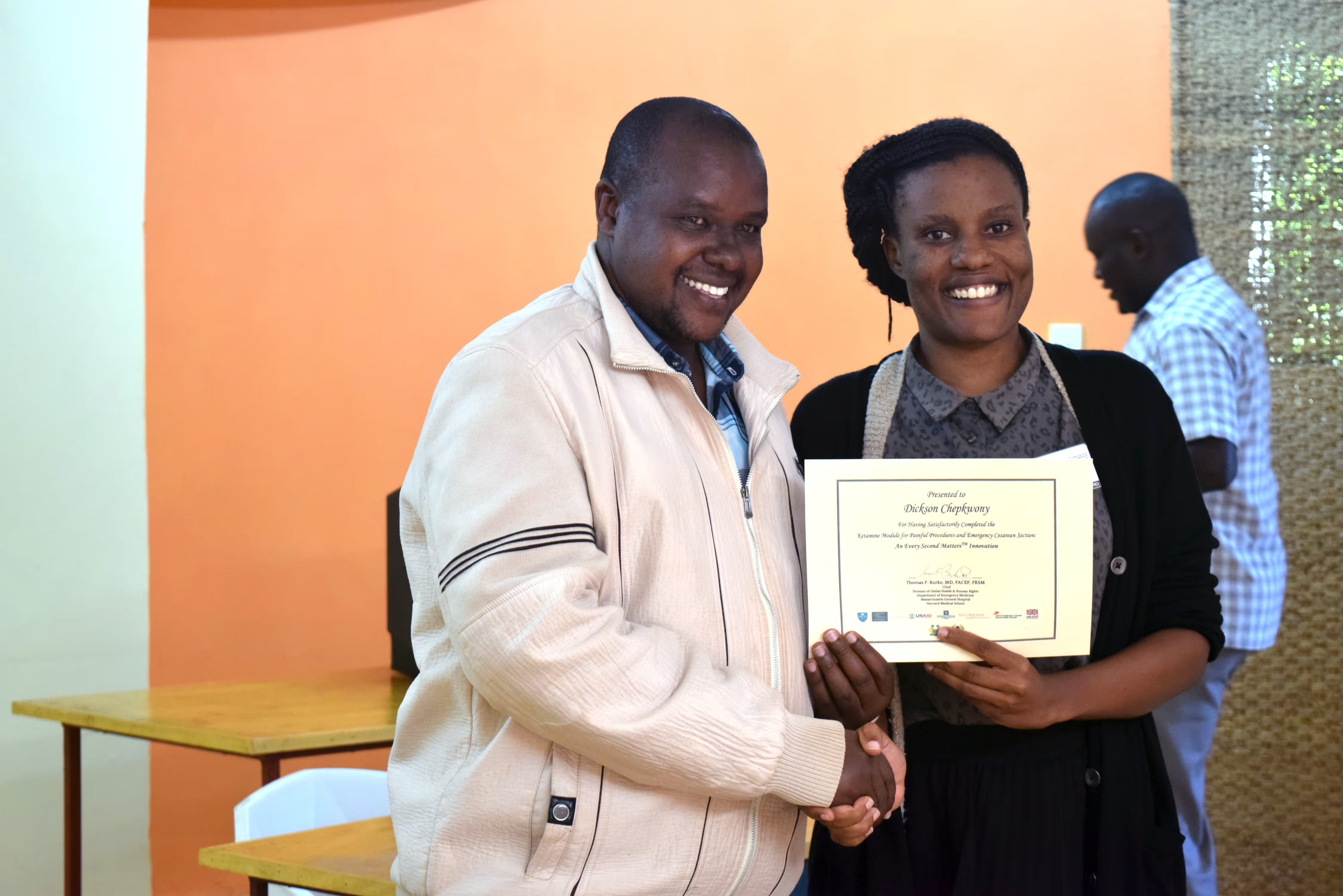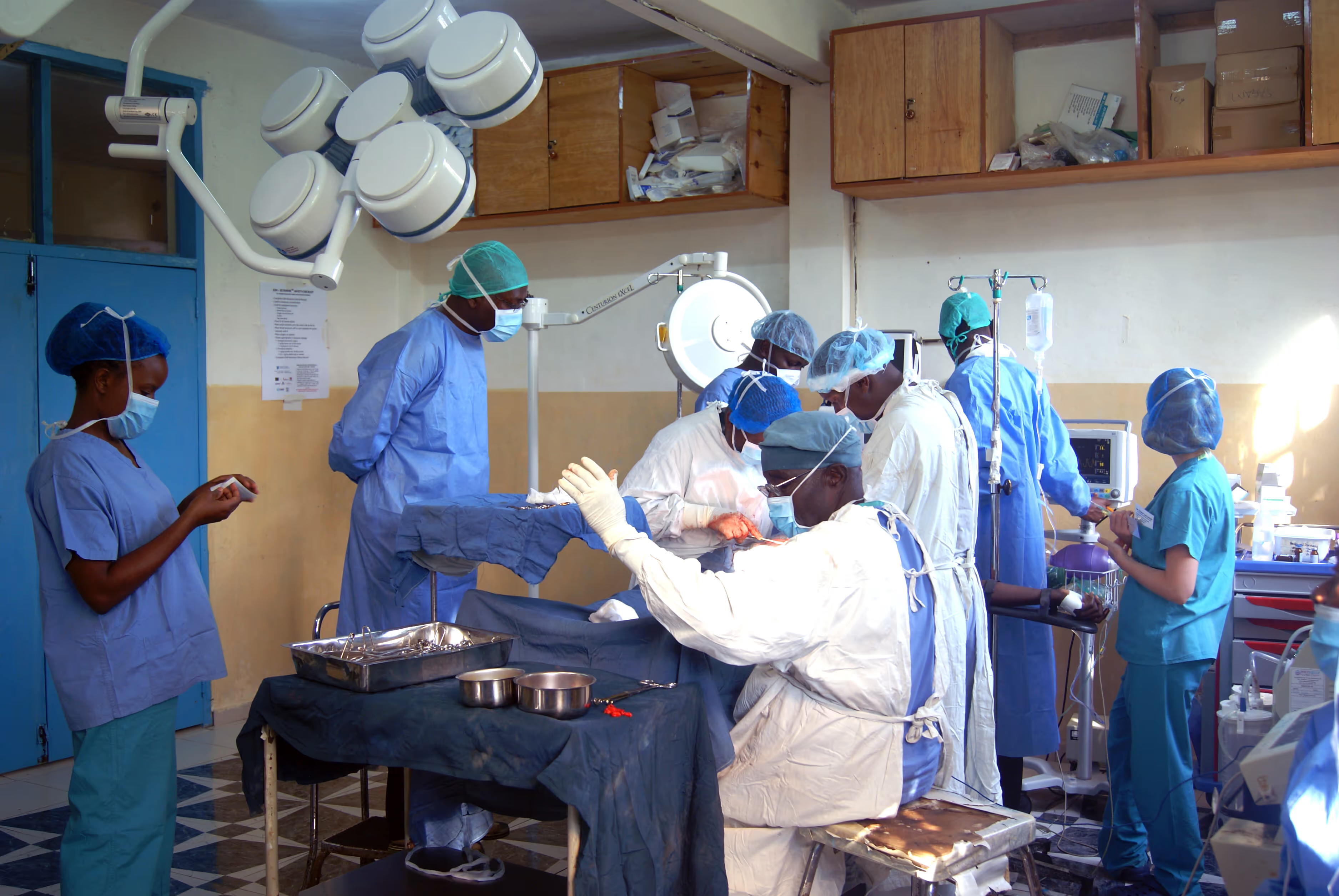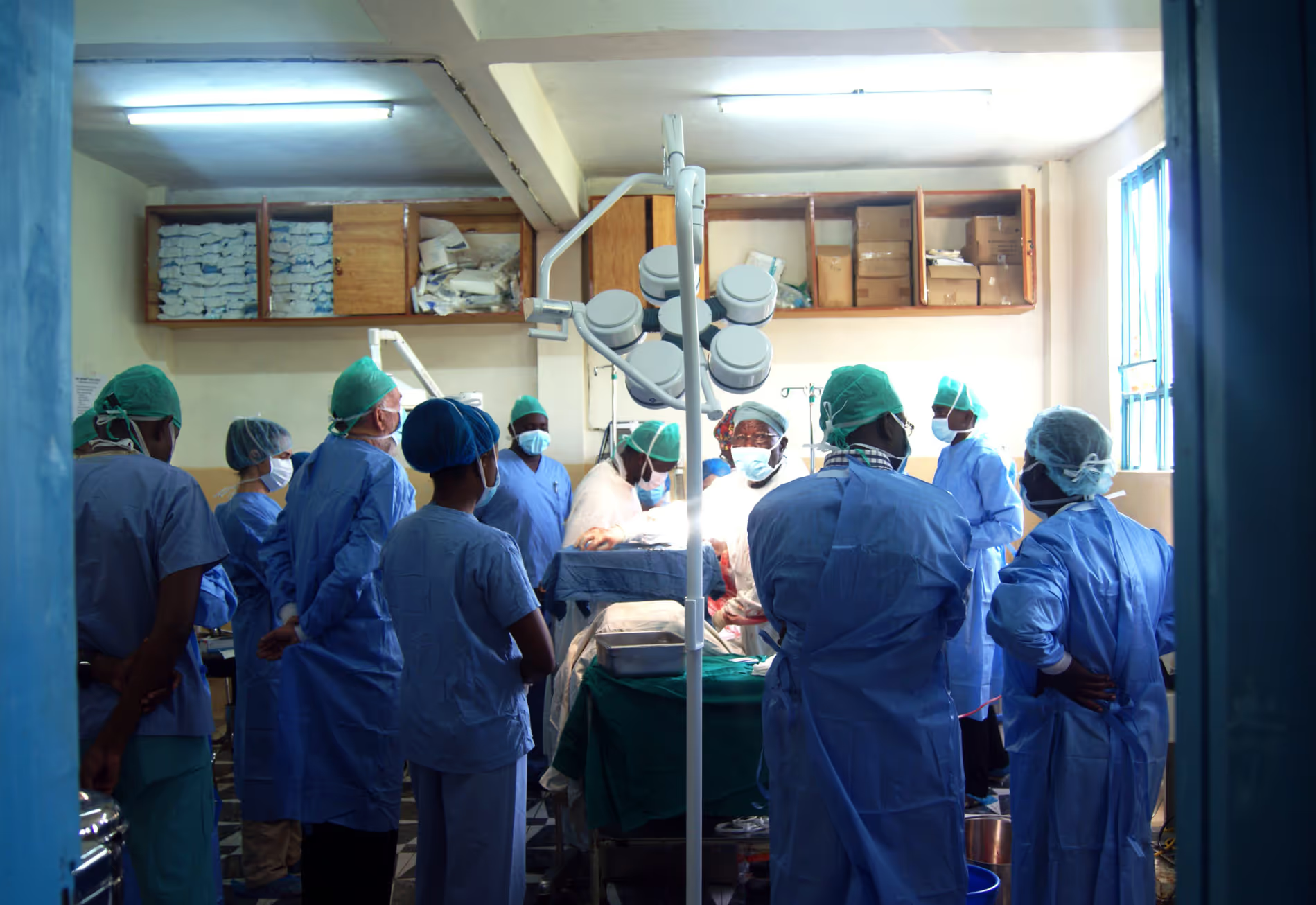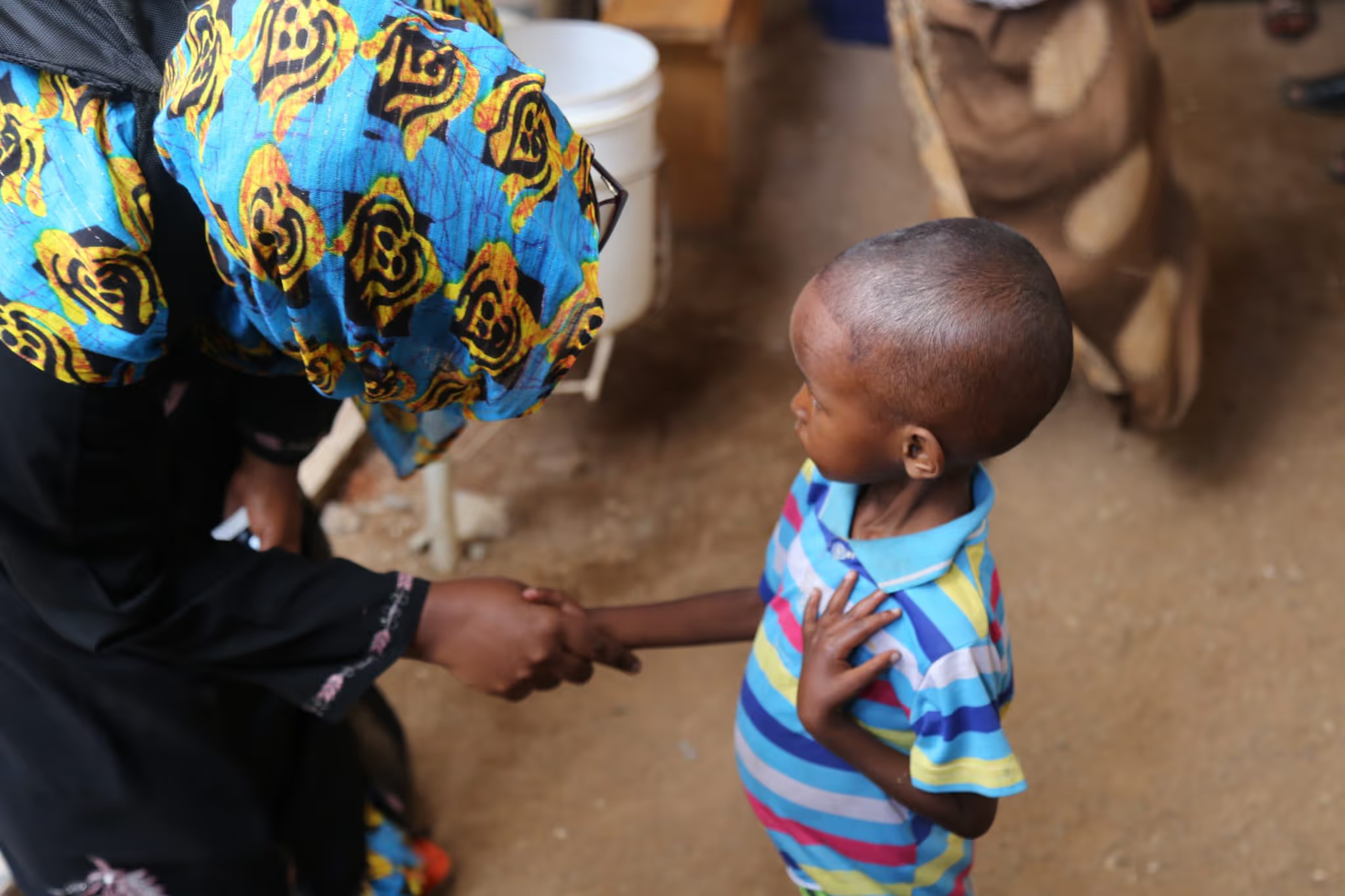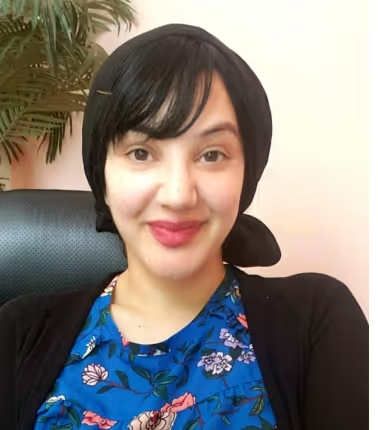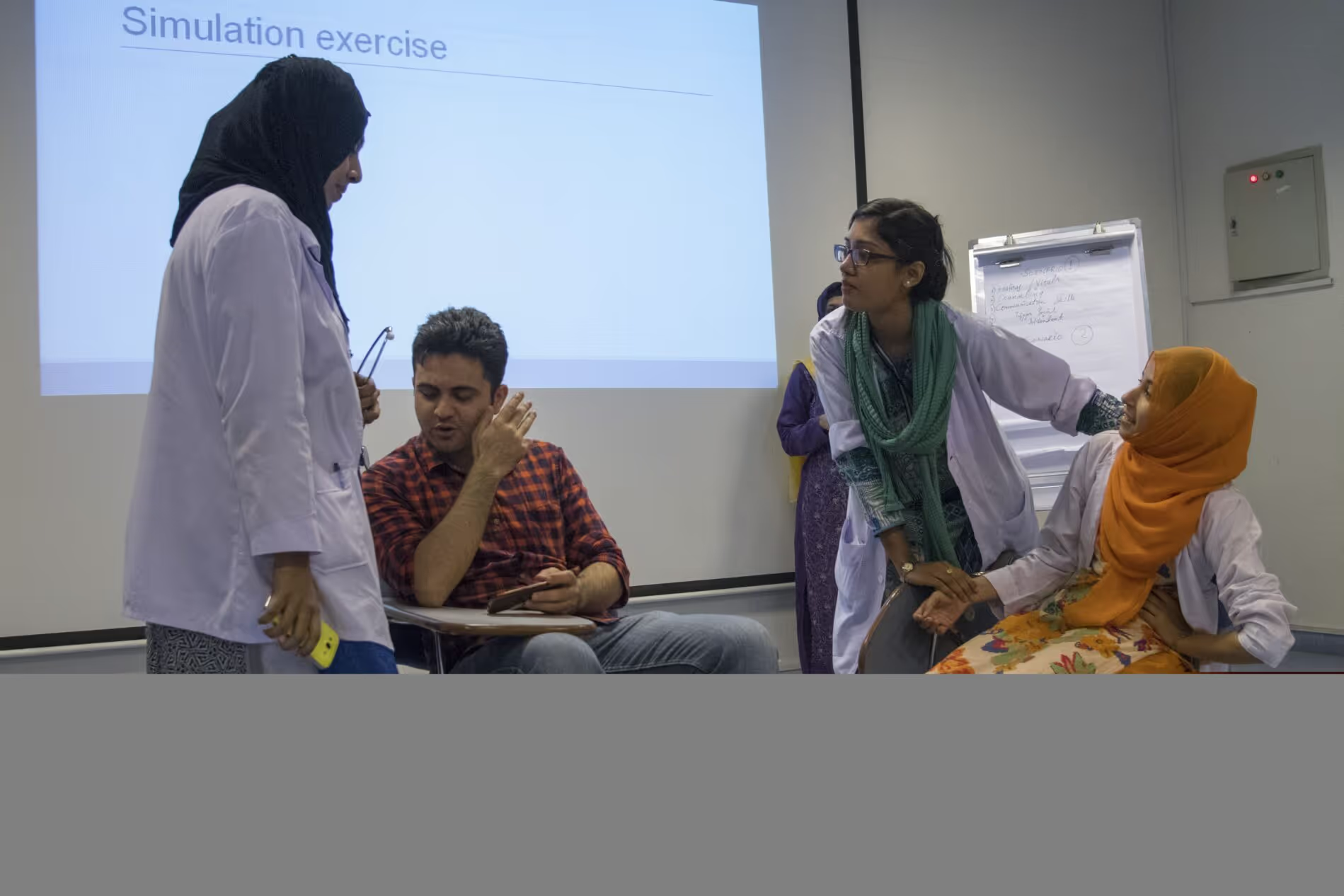Every Second Matters–Ketamine Humanitarian Crisis
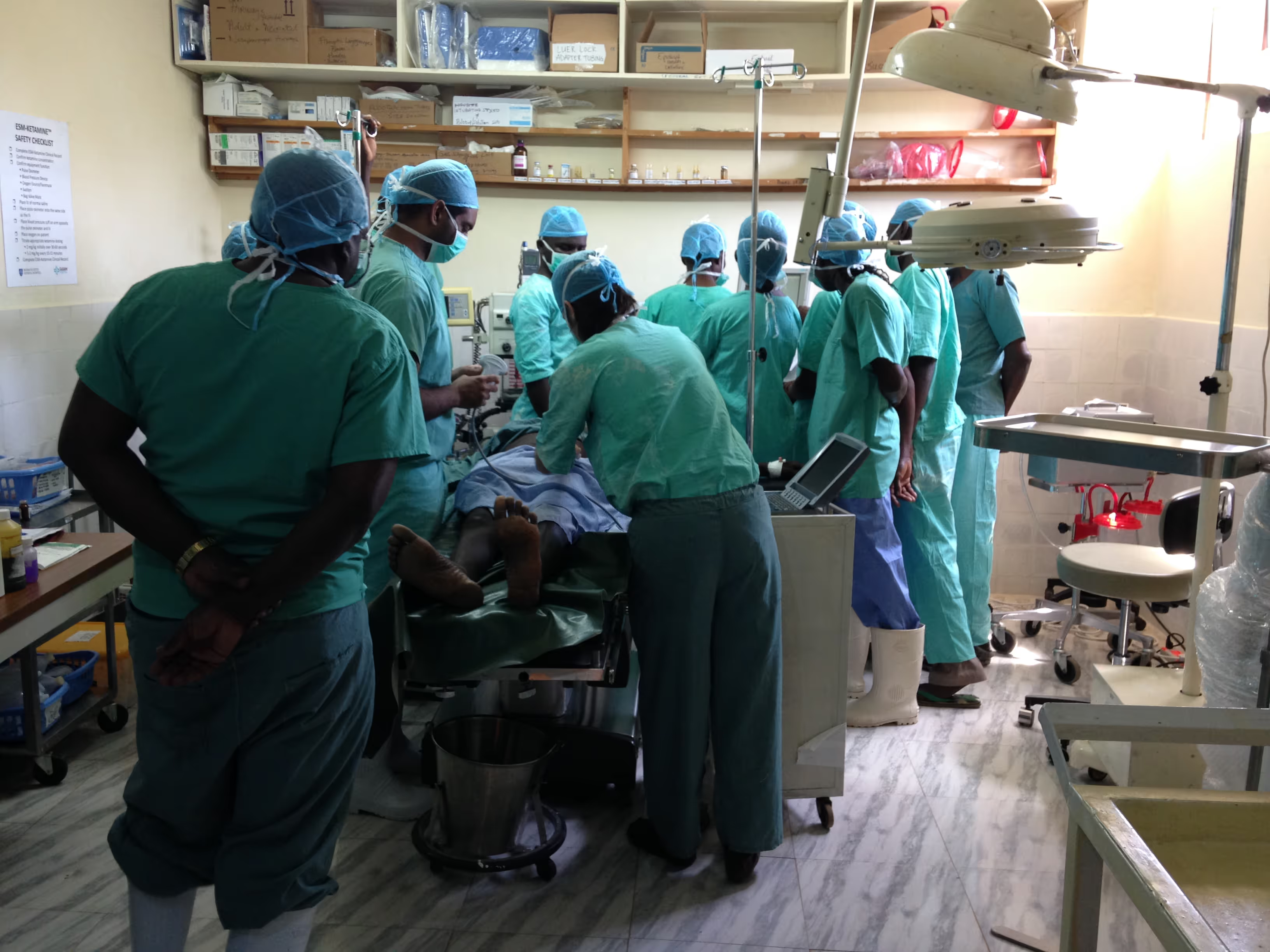
Project overview
The project facilitated emergency, life-saving, and life-improving operations in hospitals located in rural Kenya, while gaining a clear picture of the feasibility, safety, and impact of the ESM-Ketamine HC package in these two humanitarian crisis settings.
Countries
Kenya
Organisations
Massachusetts General Hospital Division of Global Health and Human Rights
Partners
UNICEF, Kenya County Ministries of Health, African Institute for Health Transformation at Sagam Community Hospital, Maseno University School of Medicine Department of Surgery and Anesthesiology, College of Surgeons of East Central and Southern Africa, Kisumu Medical Education Trust (KMET)
Area of funding
Humanitarian Research
Grant amount
£450,500
Start date
01
September
2016
End date
01
June
2019
Project length (in months)
33
Funding calls
Focus areas
No items found.
Topics
Maternal and child health
Surgery
Status
Closed
Project solution
This project offers [specific solution or intervention] to tackle [challenge]. By implementing [strategies, tools, or innovations], the project aims to achieve [desired outcomes]. The approach is designed to [specific actions or methods] to bring about meaningful change in [community, region, or issue area].
Expected outcomes
This project aims to achieve [specific outcomes], such as [measurable results, improvements, or changes]. The expected impact includes [benefits to the target community, advancements in research or innovation, or long-term effects]. By the end of the project, we anticipate [specific changes or milestones] that will contribute to [broader goals or objectives].
No items found.
Principal Investigator: Thomas F. Burke, MGH
Research snapshot
Ketamine may be a cost-effective and safe drug to help address a primary barrier to provision of emergency and essential surgery in humanitarian and low-resource settings.
[.cta_link]View[.cta_link]
What did this study set out to achieve?
Five of the 7.2 billion people on earth have limited access to emergency surgery when needed and one of the primary barriers is a lack of anaesthesia services. The research set out to rigorously test the safety and effectiveness of Every Second Matters – Ketamine Humanitarian Crisisâ„¢ (ESM-Ketamine HCâ„¢) when administered by non-anaesthetists in the crisis-affected regions of Kenya that border South Sudan and Somalia. The project aimed to improve access to emergency and life-improving surgery after implementation of the ESM-Ketamine HC package in Garissa, Turkana, Mandera, and Wajir counties.
What were the key findings?
- During the project period, a total of 1989 operative procedures were supported with ketamine. 425 (21.4%) cases were emergency cases, of which 236 were caesarean sections, 125 were laparotomies, and 9 were open fixations of fractures. Given that there were no deaths or disabilities attributable to ESM-Ketamine among the 1989 cases, the package safety profile is very encouraging– especially since many were true emergencies that were likely to have been lethal without surgery.
- The patient interviews suggested that most patients had positive experiences with the ESM-Ketamine package when it was used in support of emergency and essential surgeries when no anaesthetist was available. More than 85% of surveyed patients considered their experience with ketamine positive and 95% would recommend it to a friend.
The project helped gain a clearer picture of the feasibility and safety of ESM-Ketamine in humanitarian settings. The research also demonstrated the value of ESM-Ketamine according to providers, surgeons, and facility administrators, most of whom enthusiastically support the expansion of the program throughout Kenya and to other resource-limited settings. The wide availability and low cost of ketamine helped with the financial burden of surgeries. ESM-Ketamine was found to significantly decrease waiting times, increase institution surgical capacity, and improve the reputation of facilities and perception of quality of care based on perceived outcome improvement and timely management of surgical emergencies when no anaesthetist was available.
What does this mean for policymakers and practitioners?
Ketamine may be a cost-effective and safe drug to help address a primary barrier to provision of emergency and essential surgery in humanitarian and low-resource settings. The ESM-Ketamine package provides guidance for providers in utilising ketamine. The study team has secured funds to expand ESM-Ketamine to 15 additional facilities across Kenya and over 2000 cases have been supported as of March 2020. Health system and development organisation leaders considering deploying the ESM-Ketamine package should note the following:
- Ketamine may provide a solution to the ‘anaesthetist gap’ and have application for caesarean sections in particular.
- In stable settings, engage local health officials and local hospital staff in roll-out of the package.
- Consider appointing ‘ketamine champions’, a point person for each facility, to support data collection and clinical inquires.
- Not all patients can optimally be treated with ketamine- for example patients with schizophrenia.
- The goal of the manual and training is to ensure that facility staff can apply good judgement on a case-by-case basis in the use of the ESM-Ketamine package.
- The package is for use only in emergencies or where anaesthetists are not available.
- Training of anaesthetists/ provision of anaesthetics must remain a high priority for policymakers if we are to sustainably address the ‘anaesthesia gap’.
No items found.
Project delivery & updates
Stay up to date with the latest developments from this project. Here, you will find details on what has been delivered, resources created, and regular updates as the project progresses. Access key documents, reports, and other materials to see how the project is making an impact.
No resources/updates have been published yet for this project. Sign up for our newsletter to stay informed about upcoming publications and updates!
Join our Newsletter
Resources
No items found.
Latest updates
No items found.
